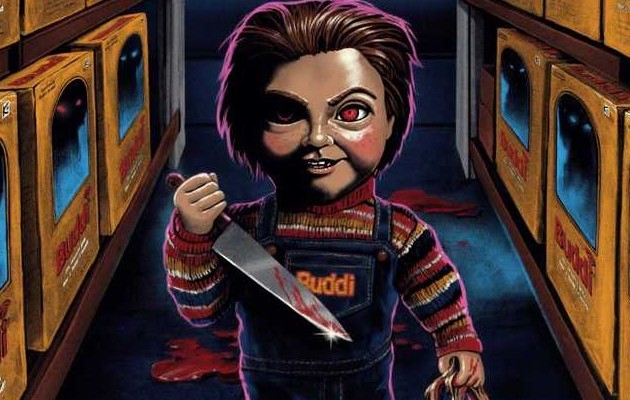As David McNally states in his book Monsters of The Market: Zombies, Vampires and Global Capitalism, the origin of the concept of fetishism stems from colonising Europeans attempting in vain to buy objects of great cultural, spiritual and personal significance from native Africans. The unwillingness of the latter to conform to market values was seen as irrational and pathological. However, this judgment was a projection of western colonial culture, whose own value systems were even more rife with irrational beliefs.
These beliefs don’t just extend to commodity fetishism, which Marx described as ‘[the] fantastic form of a relation between things’ (Capital, 1:77), most notably when social relations in our lives are abstracted and appear as autonomous market relations. This dynamic eventually led to more complicated forms of abstraction. A century ago, Freud noted that children’s projection of life onto dolls was a commonplace behaviour, which he linked to the phenomenon of the uncanny. In modernity, our dreams, desires and fears have become attached to the objects, products and commodities that populate our everyday lives.
In both Tom Holland’s original Child’s Play (1988) and this year’s remake, there is something wrong at the heart the Good Guy doll. In the original film, the doll turns evil after being possessed the soul of the deceased Charles Lee Ray – nicknamed Chucky – for the purpose of exacting bloody revenge on his enemies from beyond the grave, thereby reincarnating into a consumer product. This first Chucky is an abomination of a cheap plastic shell and gory internal organs, who, in order to become fully human again, needs to possess the film’s child protagonist, Andy.
The original film took place in a decaying Chicago, and Chucky’s knowledge of Haitian magic and relationships with people of colour insinuated a moral degeneration stemming from cultural, racial and class-based miscegenation. The racist fear that youth can be corrupted and victimised by the scum of urban life, and that the fabric of normative familial relationships be torn asunder by a nebulous ‘them’, is one that fuels much of middle-class America’s paranoia. The film ended in the uptown apartment, with the scenario of a violent home-invasion playing out exactly as if it was re-enacted in a schlocky true-crime report.
With the newest reboot of the franchise, the flaw now takes place in the production of the doll itself. In a dingy factory in Vietnam, a programmer driven to despair by the inhuman Taylorism he lives through each day sabotages a high-tech Buddi doll to wreak vengeance on a random Western consumer. Aside from the undoubtedly racist dynamic that evokes the Yellow Peril, there is a consumer anxiety that wasn’t present in the original. There, the commodity/product was in some sense a tabula rasa, ready to be imprinted by the consumer. In the reboot, the doll is tainted in utero and there is a recognisable anxiety that it is the production process itself that is compromised – due to being based on the mass-exploitation and immiseration of entire nations.
Chucky returns as an expression of the repressed proletariat that toils in the Global South, and it manifests itself through bleeding-edge technology – something as valuable as any raw commodity stripped from the ground. It is apt that this would take the form of a doll, an everyday object to which Freud attributed the quality of the uncanny, or the expression of a repressed truth that the mind is forced to deal with.
In the reboot, Chucky is the manifestation of the Internet of Things and is able to control various machines, self-driving cars and even other Buddi dolls. Interconnectedness as a feature of new tech presents us with new anxieties and new horrors to inflict on the psyche. Back when products were inert, there was the plausible assumption that our ownership gave us dominion over them, and that the old ghosts of production that might emerge were simply chance occurrences. In the new movie, however, this relationship is called into doubt. At best, consumer products are now the expression of a new form of corporate hegemony that penetrates our homes, siphoning data to manipulate us into becoming better consumers. Or else through this network, there emerges the vengeful spirit of a nu-proletarian who acts through a technology that has become fundamental to our lives. Nevertheless, we let them into our homes willingly.
The usual pattern of social conditioning is inverted: now it’s the toys who influence our children’s behaviour. This fusion of the domestic and the technological as focal points for horror and dread are also found in Ray Bradbury’s fiction, in short stories like ‘There Will Come Soft Rains’ and ‘The Veldt’. The latter, in particular, explores the spiritual rot that festers from having all material (and some psychological) desires catered to, witnessing our thoughts and desires projected into the material world – especially within the domestic sphere. In ‘There Will Come Soft Rains’, Bradbury speculates what a self-sufficient system of domestic technology might look like without humanity attached. Cleaning mice, auto-cookers, disembodied voices reciting the favourite poetry of the house’s long dead owner are all ghosts in the machine, toiling for us instead of being worshipped as the household spirits of Ancient Rome once were. Humans have become the ghosts: silhouettes singed onto the outside of the houses, as life still flutters inside. The things that we hoarded and collected to complete us, at best are completely oblivious to our passing, and at worst, relish to drive us to our end.
But in reality, AI and its products don’t develop grudges and behavioural patterns all on their own, and the reboot of Child’s Play illustrates this through Chucky’s simplistic intelligence. Unbound by checks or safety features, the doll is influenced by casual acts of violence shown in the media and general everyday life, and commit acts of carnage while mistaking them for acts of love for his owners. This is no doubt influenced by the real-world example of MIT’s ‘first psychopath AI’, Norman. This program was fed the most heinous images on the internet and then, when asked to complete a Rorschach test, ‘saw’ a bloody accident, murder or atrocity in every one of the images it was presented with.
In his book about the speculative courses of post-capitalist society, The Worst is Yet to Come, Peter Fleming claims that ‘robotics will not develop an ‘evil intelligence’ on their own. They’ll reflect the predilections of their human programmers. Given the wickedness that people are capable of, that’s a far more worrying thought.’ Human culpability, then, becomes a cry inside an echo chamber, and technology and the new forms of social-enmeshment resulting from the current era of global capitalism cause the follies of western culture to be thrown back at us. By deploying the uncanny, horror and science-fiction merely provide us with a particular aesthetic to frame this familiar fact in unfamiliar ways.
There is one last anxiety that all of the films in the Child’s Play franchise have in common: Chucky can never really die. No matter how thoroughly his plastic form is scorched, stabbed, shattered and otherwise broken, he is easily replicated and repaired, making him a figure capable of endless reinvention and revival. There is always a new vessel for Chucky’s soul, or his software, to possess. After all, the one thing that is produced faster than human beings are our consumer products, with plastic bodies far more durable and long-lasting than our own flesh. In all of the films, there is the gothic promise that junk, the wretched, the unwashed masses and the monsters are in fact our children and their toys. They will inherit the world. And they may not want to wait around for us to die to claim it.



